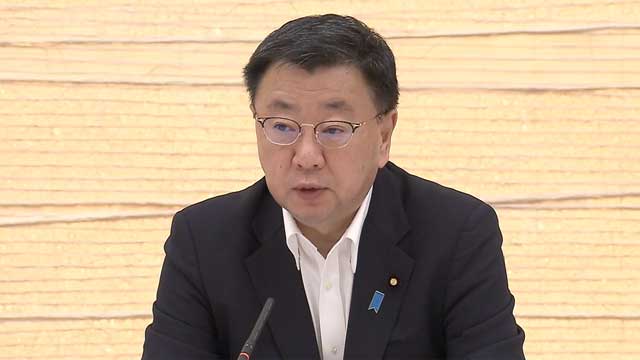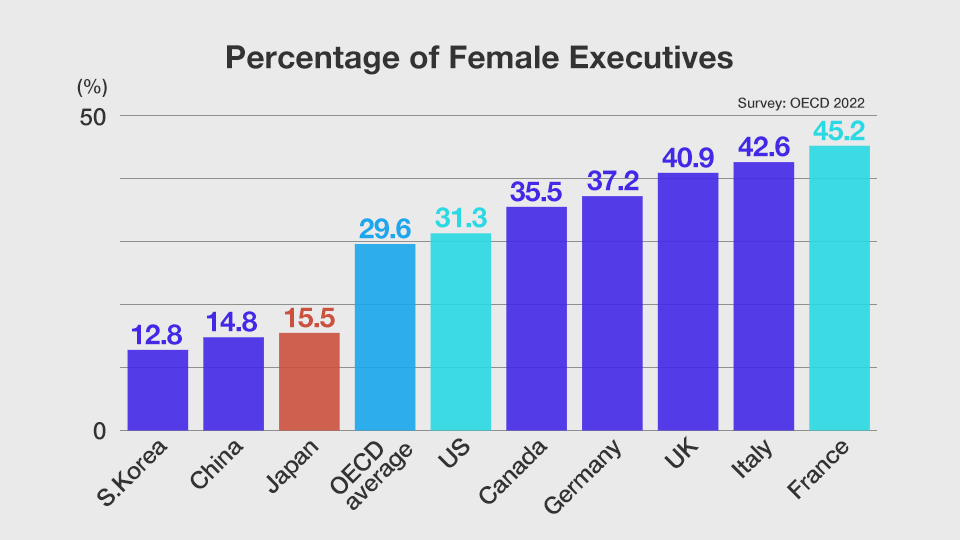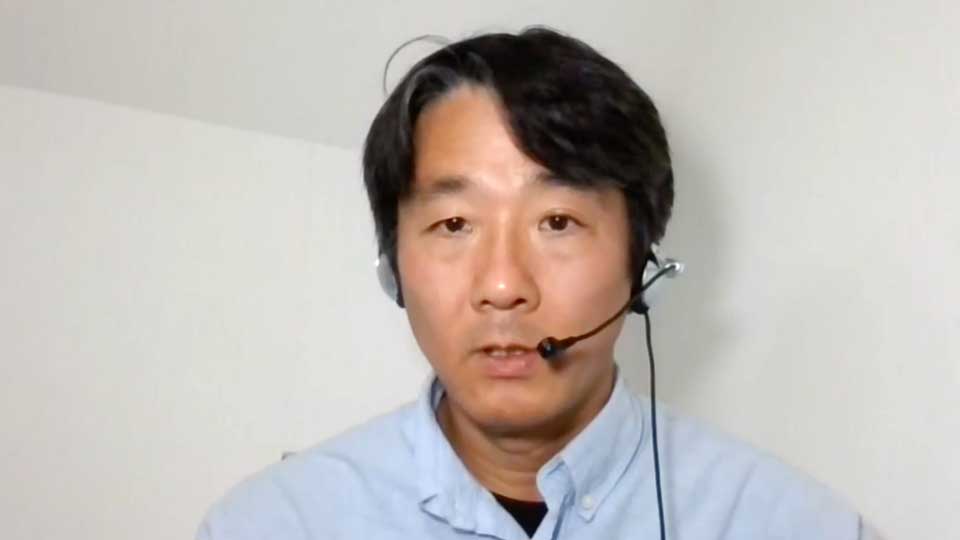The draft aims for companies listed on the Prime Market of the Tokyo Stock Exchange (TSE) to each have at least one female board member by around 2025.
The government plans to call on the companies within this year, through the TSE, to set these goals.
The draft also calls for ensuring that male employees are able to take paternal leave. It includes creating a system to maintain family incomes when parents opt to work shorter hours until their child turns two years old.
Strengthening measures to protect women from sexual assault and other forms of violence is among other items in the draft, as well as preventing workplace harassment.
The government will discuss the draft with the ruling parties before finalizing the contents within this month.
Chief Cabinet Secretary Matsuno Hirokazu said, "Many women are still being forced to choose between life events and career building. It is necessary to tackle structural issues, such as labor practices centering on long working hours, and the fact that women tend to bear more of the burden of unpaid labor such as housework and childcare, as well as fixed expectations of gender roles."

Business group welcomes plan
Chairman Tokura Masakazu of the Japan Business Federation, or Keidanren, said the government has established practical targets, which are key to improving the workplace environment.
Tokura said, "The question is how to make it easier for working women to take the steps necessary to be promoted, and to take greater responsibility under the same conditions as men."

20 percent of Japan's top companies have no female board members
One survey shows the ratio of female executives at companies listed on the Tokyo Stock Exchange's Prime Market was 11.4 percent last year. "Female executives" were defined as board members, auditors and executive officers.
The government's definition of "female executive" is wider, and also includes "corporate officers and those who are equivalent to them."
Consulting firm ProNed said that 383 of the 1,829 companies listed on the Prime Market as of July 1 last year, or 20.9 percent, had no female board members.
Institutional investors at home and abroad have recently been placing more importance on the gender balance of the management of the companies in which they invest.
Some investors have decided to oppose the appointment of top executives at shareholders' meetings if the company has no female board members.
Japan lags OECD countries in female executive ratios
The Organization for Economic Cooperation and Development, or OECD, surveyed major companies in various countries last year on the percentage of female executives.
Its poll covered 50 leading companies in the European Union and elsewhere, as well as companies included in other countries' global stock indexes. In Japan, 283 companies were surveyed.
The OECD defines "female executives" as directors, auditors, and executive officers. It does not include corporate officers as the Japanese government does.

The OECD's survey found that the ratio of female executives in Japan is lower than in Europe and the United States.
Some countries have adopted quota systems requiring companies to appoint a certain percentage of female executives. The ratio of female executives is 45.2 percent in France and more than 40 percent in both Italy and Britain.
In the United States, the figure is 31.3 percent. The average for OECD countries is 29.6 percent.
In contrast, the ratio of female executives in Japan is 15.5 percent.
Expert: Companies need to think beyond meeting female executive target
Ikeda Shingou, Senior Researcher at the Japan Institute for Labour Policy and Training, said that the delay in women's empowerment is one factor behind Japan's sluggish economy and labor market.
"It's no longer an era of a competition in physical strength in which men had advantages. It's an era of a competition in knowledge and ideas. It is natural that men and women can play active roles regardless of gender," Ikeda said.
He emphasized that companies should think beyond simply achieving the target ratio for female executives.
"They should not simply appoint women to executive posts just because they are women, in order to reach the target. They need to make efforts to nurture human resources, and then results should come closer to the targeted ratio. It is also important that they consider how to develop women's careers," he said.

Ikeda also cautioned that increasing benefits for parents could seem unfair to employees who do not have children, so it is important that companies support their employees who cover for those who take childcare leave or work shorter hours.
